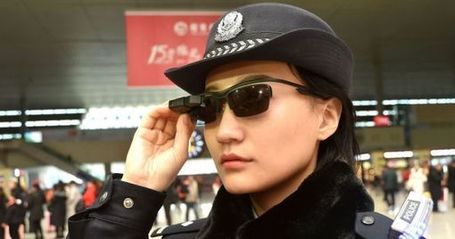You’ve probably heard of Transitions lenses that can adapt to changing light conditions. Now, get ready for facial recognition lenses.
Police officers in Zhengzhou, China have been spotted wearing sunglasses equipped with facial recognition software that allows them to identify individuals in a crowd. These surveillance sunglasses were actually rolled out last year, but a recent report from China’s QQ published a series of photos of the glasses in action.
China has consistently been ahead of the curve in terms of utilizing artificial intelligence (AI) for surveillance. The country’s CCTV system tracked down a BBC reporter in just seven minutes during a demonstration in 2017. But this new technology, developed by LLVision, takes China’s surveillance efforts to a whole new level. Not just in theory, either — reports from the official People’s Daily newspaper seem to indicate that it’s improving police work.
Sourced through Scoop.it from: futurism.com
Wes McKinney hates the idea of researchers wasting their time. “Scientists unnecessarily dealing with the drudgery of simple data manipulation tasks makes me feel terrible,” he says. Perhaps more than any other person, McKinney has helped fix that problem. McKinney is the developer of “Pandas”, one of the main tools used by data analyst
Sourced through Scoop.it from: qz.com
TensorFlow is Google’s open source framework for machine learning. Rainforest Connection is using this framework to protect the rainforests, such as the Amazon. The method is ingenious and representative of a utilitarian society that we should all be lurching towards.
It’s pretty much impossible to expect investments in human guards across the entirety of the Amazon rainforest. So what’s the next best thing? The people living in the rainforest themselves. Collaborating with local tribes in the Amazon, such as the Tembé tribe from central Amazon, Rainforest Connection has come up with a solution that combines the best of the old world with the new.
Sourced through Scoop.it from: www.tapscape.com










